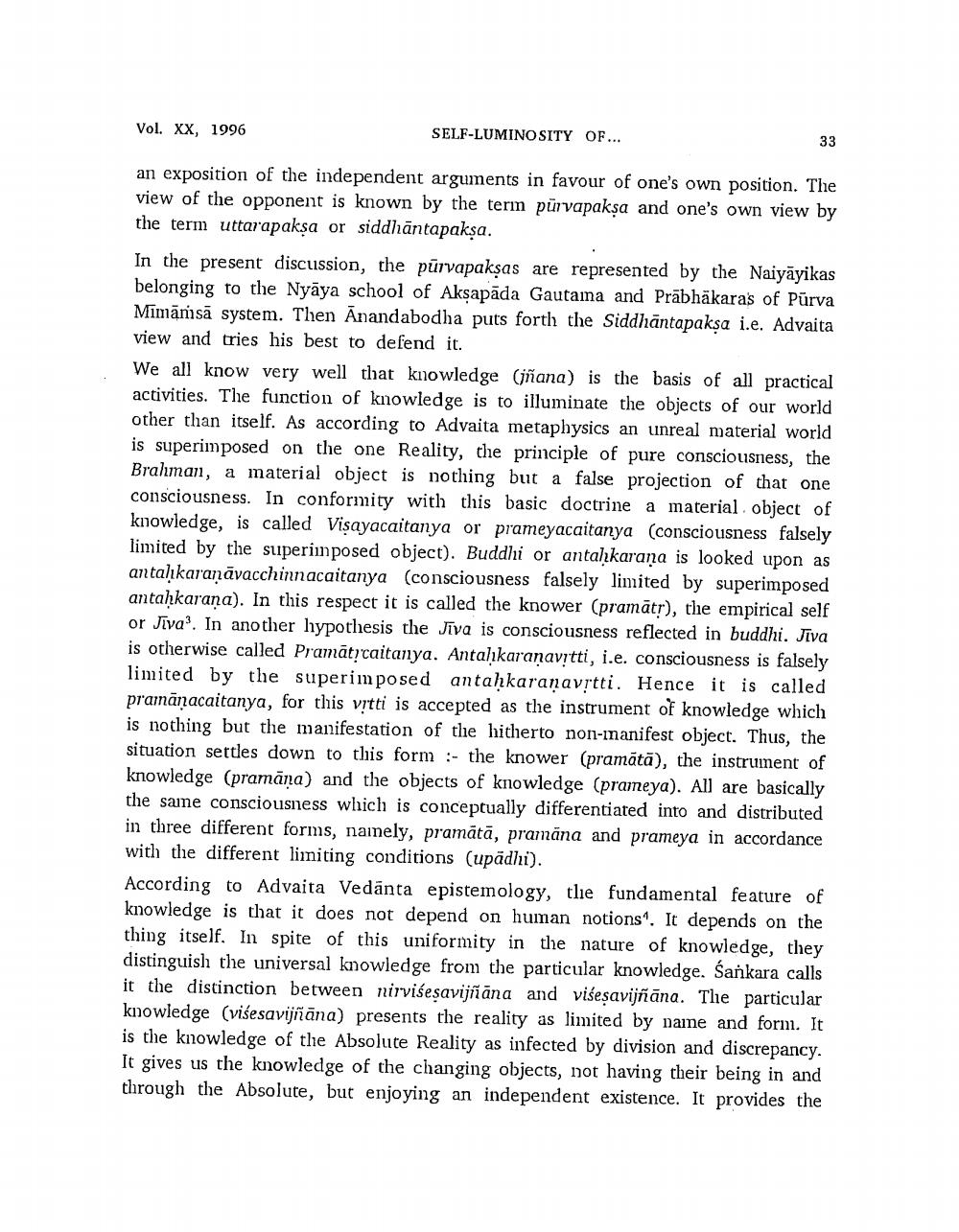________________
Vol. XX, 1996
SELF-LUMINOSITY OF...
an exposition of the independent arguments in favour of one's own position. The view of the opponent is known by the term pürvapaksa and one's own view by the term uttarapaksa or siddhāntapakşa. In the present discussion, the pūrvapaksas are represented by the Naiyāyikas belonging to the Nyāya school of Aksapāda Gautama and Prābhākara's of Pūrva Mimānisā system. Then Anandabodha puts forth the Siddhāntapaksa i.e. Advaita view and tries his best to defend it. We all know very well that knowledge (jñana) is the basis of all practical activities. The function of knowledge is to illuminate the objects of our world other than itself. As according to Advaita metaphysics an unreal material world is superimposed on the one Reality, the principle of pure consciousness, the Brahman, a material object is nothing but a false projection of that one consciousness. In conformity with this basic doctrine a material object of knowledge, is called Visayacaitanya or prameyacaitanya (consciousness falsely limited by the superimposed object). Buddhi or antalkarana is looked upon as antalıkaraṇāvacchinnacaitanya (consciousness falsely limited by superimposed antahkarana). In this respect it is called the knower (pramāts), the empirical self or Jiva?. In another hypothesis the Jiva is consciousness reflected in buddhi. Jiva is otherwise called Pramātịcaitanya. Antahkaranavịtti, i.e. consciousness is falsely limited by the superimposed antahkaranavrtti. Hence it is called pramnāņacaitanya, for this vitti is accepted as the instrument of knowledge which is nothing but the manifestation of the hitherto non-inanifest object. Thus, the situation sertles down to this form :- the knower (pramātā), the instrument of knowledge (pramāna) and the objects of knowledge (prameya). All are basically the same consciousness which is conceptually differentiated into and distributed in three different forms, namely, pramātā, pramāna and prameya in accordance with the different limiting conditions (upädhi). According to Advaita Vedānta epistemology, tlie fundamental feature of knowledge is that it does not depend on human notions". It depends on the thing itself. In spite of this uniformity in the nature of knowledge, they distinguish the universal knowledge from the particular knowledge. Sankara calls it the distinction between nirvisesavijñāna and višesavijñāna. The particular knowledge (višesavijñāna) presents the reality as limited by name and form. It is the knowledge of the Absolute Reality as infected by division and discrepancy. It gives us the knowledge of the changing objects, not having their being in and through the Absolute, but enjoying an independent existence. It provides the




